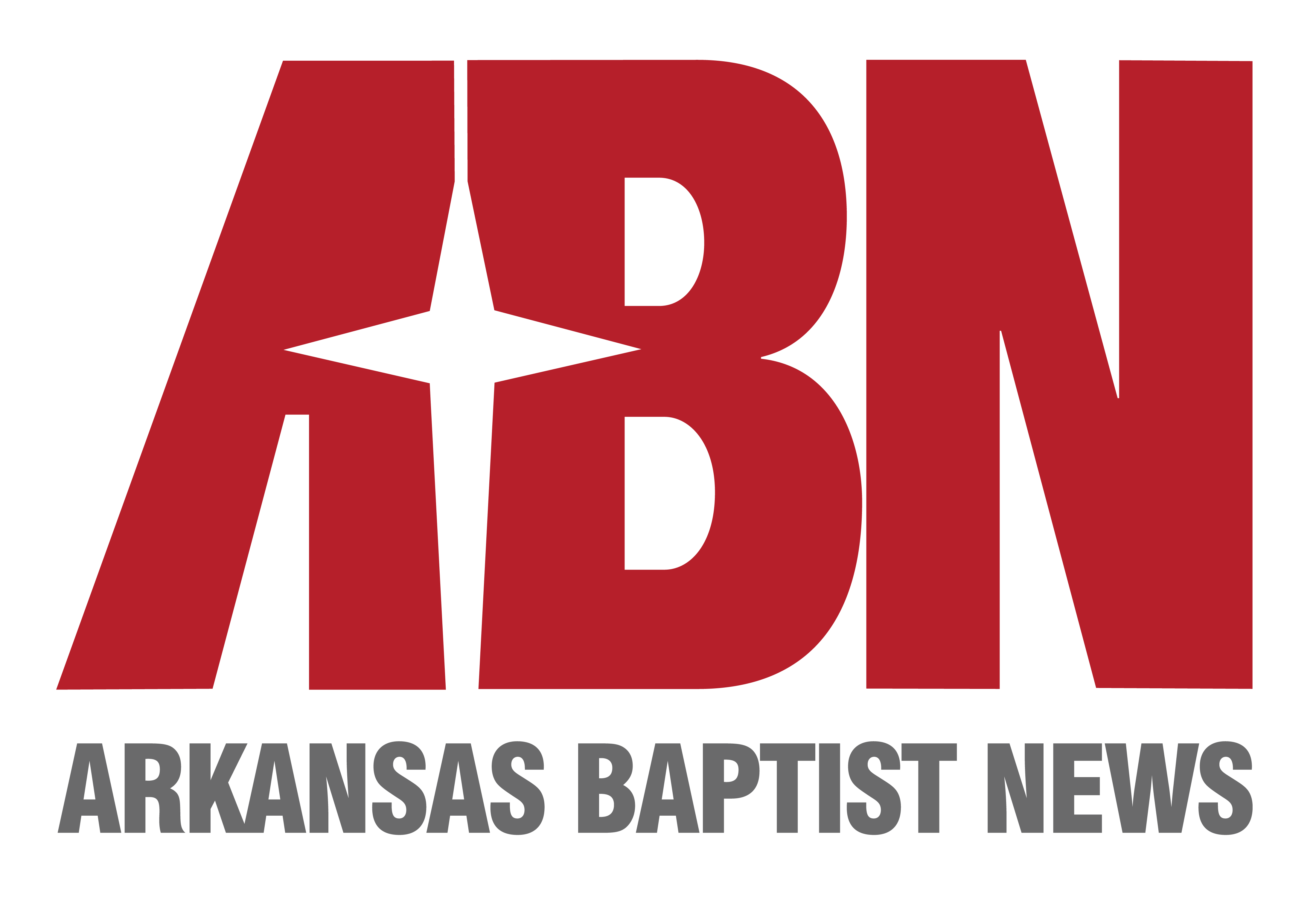LITTLE ROCK, Ark. – Several pastors and church leaders from across the state gathered at the Arkansas Baptist State Convention on Tuesday for the first of two Renewing the Church Summits.
Mark Clifton, senior director of replanting at the North American Mission Board (NAMB) of the Southern Baptist Convention, and JimBo Stewart, who serves as the associate director of replant with NAMB, were the guest speakers. The two touched on strategies for church leaders who desire to position their churches for health and growth.
During the morning session, Clifton focused on Genesis 26:12-18, “Isaac sowed seed in that land, and in that year he reaped a hundred times what was sown. The Lord blessed him, 13 and the man became rich and kept getting richer until he was very wealthy. 14 He had flocks of sheep, herds of cattle, and many slaves, and the Philistines were envious of him. 15 Philistines stopped up all the wells that his father’s servants had dug in the days of his father Abraham, filling them with dirt. 16 And Abimelech said to Isaac, ‘Leave us, for you are much too powerful for us.’17 So Isaac left there, camped in the Gerar Valley, and lived there. 18 Isaac reopened the wells that had been dug in the days of his father Abraham and that the Philistines had stopped up after Abraham died. He gave them the same names his father had given them.”
“If you want to make a land uninhabitable for your enemy, and it’s in the desert, all you really have to do is take the water away. The only reason there is life in that desert area is that there is a source of water in the desert area. … If you take the water away, then there is no life there. You can’t live without water. It becomes a lifeless place,” Clifton said. “The Philistines knew that. So, what did they do? They stopped up the wells that Abraham had dug.”
Clifton said there are roughly 47,000 Southern Baptist churches across America. Yet many neighborhoods and communities are struggling with crises.

“We live in a thirsty and dry land spiritually. We live in a desert spiritually. People are dying everyday spiritually. Our churches are struggling and as Southern Baptists we see 800 a year cease to exist,” he said. “Satan has stopped up our wells. These churches that were once life-giving places where living water sprang from are now places where it’s just a trickle of water that is coming out and it didn’t happen overnight.”
Little by little, the well was filled. Slowly the water becomes less and less, Clifton said, and the land around us becomes dryer and more lifeless.
“Your job and my job as a pastor, among many other things, is first of all to guard the well and don’t let Satan stop it up and that’s a hard thing to do,” Clifton said. “The one thing he wants to do more than anything else is rob God of His glory. … Satan wants to rob God of His glory by causing your church to decline and not be what God wants it to be.”
Churches may cite several issues for their struggles, such as changing demographics, aging congregations, or leadership challenges. And though those things may be present, they are not the issue, Clifton said.
“The reason all those things are preventing you from doing what Christ is wanting you to do is the adversary constantly working behind the scenes and the hearts and minds of even your congregation … and sometimes even for us as pastors it causes us to do things that we shouldn’t do with our churches and each time that happens it’s very likely one of those things is beginning to stop up those wells of living water,” he said.
But there is still water. In Genesis, Isaac did not say the well would never give any life again and go someplace else and dig a new one. He reopened the wells.
“I’m not saying don’t plant churches, but I’m certainly saying you don’t ignore the ones we have. There was living water there. There is still living water there,” he said.
When talking about a church that needs renewal, Clifton said there are parts of that church that will drive you crazy. But you have “to love the church you have, not the church you wish you had.”
“You got the church God has given you and you’ve got to love that church,” he said, referencing Paul and the Corinthian church. “Paul loved the Corinthian church in all of its disfunction. I don’t know what is going on in your church, but it is probably not as bad as Corinth.”
Church renewal is always about opportunity and adversaries. Even in a church of three people, Clifton said there is opportunity. However, wherever there is Gospel opportunity, he said there is always adversity. That is not a reason to leave. It is a reason to stay.
“God put you there. He knows you are there. And He will give you the tools that you need to lead that church through renewal if you will follow Him and His plan,” Clifton said.
Reopening the wells
When reopening the well, Clifton said it is important to accept responsibility. Nearly every church in need of renewal has a reason it is in its current situation.
“We have to accept some responsibility for the situation that we’re in and acknowledge that Jesus is greater than any of those problems,” he said. “You have to accept responsibility. You remember how far you have fallen and repent. Without repentance of a pastor there is no renewal. Without repentance of a church there is no renewal.”
Churches searching for renewal also need to overcome the traps of traditionalism and resistance to change.
“Traditionalism says we can’t change any of this because of whatever is going on here,” Clifton said, adding it is something that dictates what you are going to do whether you should do it or not. “Those traditionalisms are traps. They reflect people’s values and desires more than the Lord’s desire and values.”
Clifton also encouraged churches to “expand the score card.”
“You’ve got to stop looking at renewal as, how are we growing numerically? Not a single church in the New Testament is identified as how big it is,” he said. “You and I both know when Jesus gave us the Great Commission … His final words to us were not go therefore and break the 200-barrier mark. No. It was go therefore and make disciples.”
It is easier to try to add numbers in worship than it is to make a disciple, Clifton said.
“Success is not numerical growth. Success is a pattern of making disciples who make disciples that result in your community being noticeably better,” he said. “If you don’t hear anything else that I say today, leave with that.”
Clifton noted the median Baptist church is 67 people and is on the decline.
“Our churches are getting numerically smaller,” he said. “I know it seems counter intuitive but that is not necessarily a bad thing. Our God does some of His best work in small places with small things. But if we are getting smaller and we are not making disciples out of those that we have that is a terrible thing.”
Additionally, Clifton stressed the importance of a commitment to prayer. He said a church that does not pray is a church that is never going to see renewal.
“If you do the hard work of prayer then you’ll seek to make disciples and you’ll seek to glorify God in that place and you’ll seek to love your neighborhood with abandon,” Clifton said.
“You are going through that work of digging again those wells and you will find the water will grow a little stronger, and a little stronger. Then one day something will happen, and you’ll remove a big piece of rock, and it will just flow right out. Anytime you see a church that has experienced amazing renewal, there has been an incredible amount of work done to dig again those wells.”
The second Renewing the Church Summit is being held on Wednesday, March 27, in Rogers.


